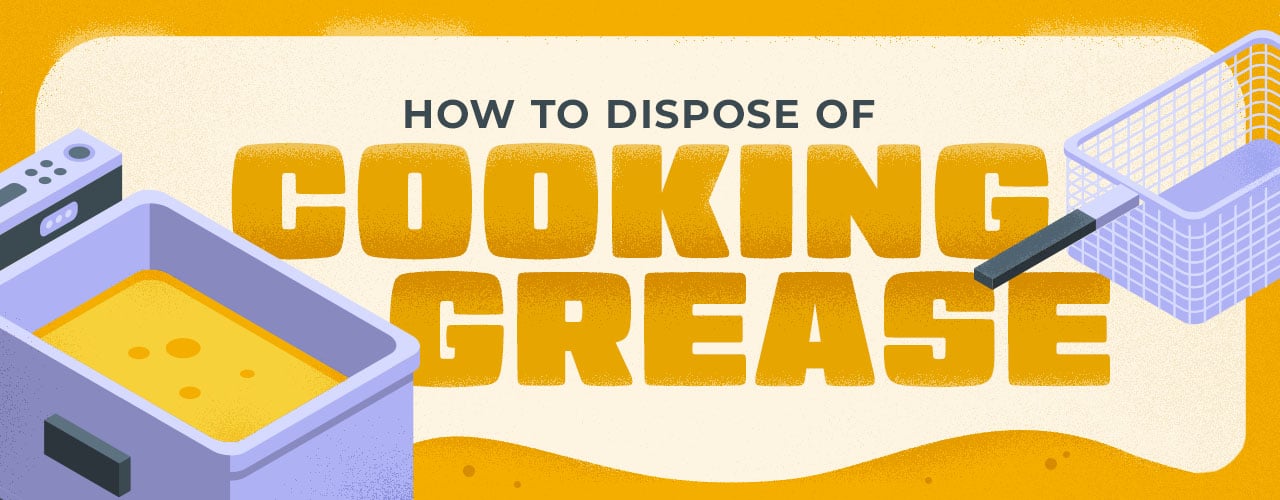Running a restaurant involves a lot of moving parts, and one of the most important considerations is what to do with your fryer oil of choice when it is spent. Proper grease removal is crucial for maintaining a clean and efficient kitchen, as well as complying with health and safety regulations. We’ll explore the best practices for grease removal in restaurants and the equipment available to effectively manage and dispose of fryer oil in a commercial kitchen.
Shop All Fryer Oil Filtration SuppliesWhat Is F.O.G?
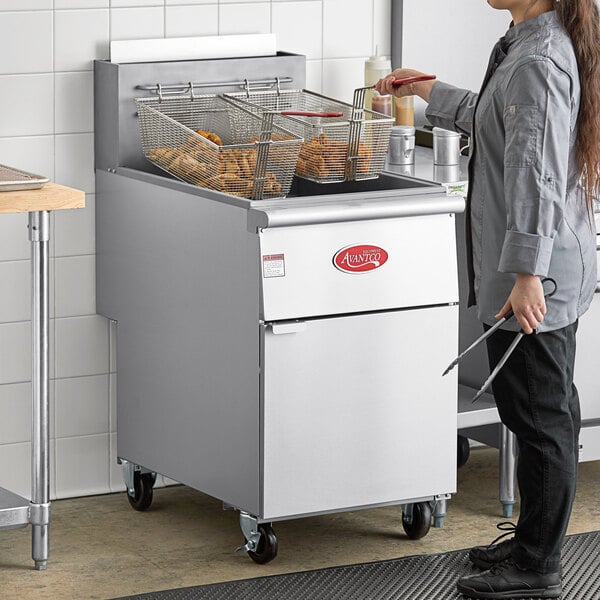
F.O.G., or fats, oils, and grease, is a common byproduct of cooking in restaurants. It is a mixture of animal fats, like bacon grease, and vegetable oils that solidify and accumulate in kitchen drains, sewer lines, and grease traps. These hard masses are often referred to as “fatbergs” and are a major cause of clogged or burst pipes, sewer backups, and flooding. This can lead to costly repairs, potential health hazards, and hefty fines from local regulatory agencies. This is why you should never pour grease down the drain. Implementing effective F.O.G. management practices, such as using grease traps and regularly cleaning kitchen equipment, can help restaurants avoid these problems and ensure a safe and hygienic working environment.
Common Sources of Grease Buildup
If you’re operating a commercial kitchen, F.O.G. can get into your pipes from more than one direction. These are the most common sources of grease in your business.
- Fryers, ranges, and grills
- Sink drains
- Floor drains
- Kitchen hoods
How to Dispose of Cooking Grease
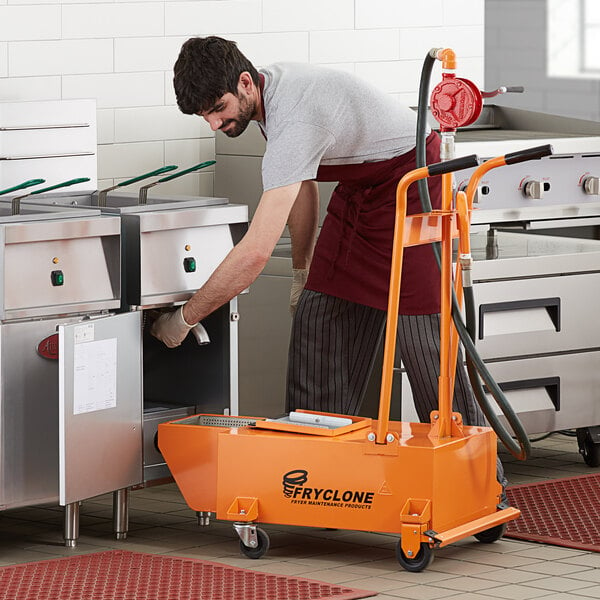
Regularly filtering fryer oil helps to remove food particles and impurities, extending the oil's lifespan. But once the oil starts to break down (smoke at lower temperatures, darken in color, and smell off-putting) it is time to change the oil and boil out the fryer.
Pouring grease down the drain is a common mistake that can lead to clogged pipes and sewer backups. Managing and disposing of restaurant grease correctly is crucial for maintaining the health and safety of your staff, but it is also essential for complying with local regulations. Here are some disposal options when it comes to what to do with restaurant grease:
- Trash It: For smaller operations or cooking tasks, collect the grease in a sealable container, such as a metal can or plastic jug, and dispose of it in the trash. Be sure to check local regulations regarding the proper disposal of restaurant grease, as some areas may have specific guidelines or restrictions.
- Hire a Grease Collection Service: If your restaurant generates a significant amount of grease, consider utilizing a grease collection service. These services provide scheduled pick-ups of used cooking oil and grease, ensuring proper disposal. They often provide containers and equipment to facilitate the collection process.
- Recycle It: One of the most environmentally friendly options for restaurant grease disposal is to recycle it. Used cooking oil can be converted into biodiesel, a renewable source of energy that can power vehicles and machinery. Many cities and towns have recycling programs in place where you can drop off your used cooking oil for proper recycling. Additionally, some companies specialize in collecting and recycling restaurant grease, so be sure to explore these options in your area.
- Donate It: Some organizations, such as animal shelters or farms, may be interested in using your used cooking oil as a food supplement for animals or as a lubricant for machinery. Donating your grease can be a great way to give back to the community and reduce waste.
Grease Collection Supplies
Grease collection supplies play a crucial role in this process by providing the necessary tools to safely and efficiently manage grease waste. Below, we take a closer look at some of the most commonly used grease collection supplies in commercial kitchens.
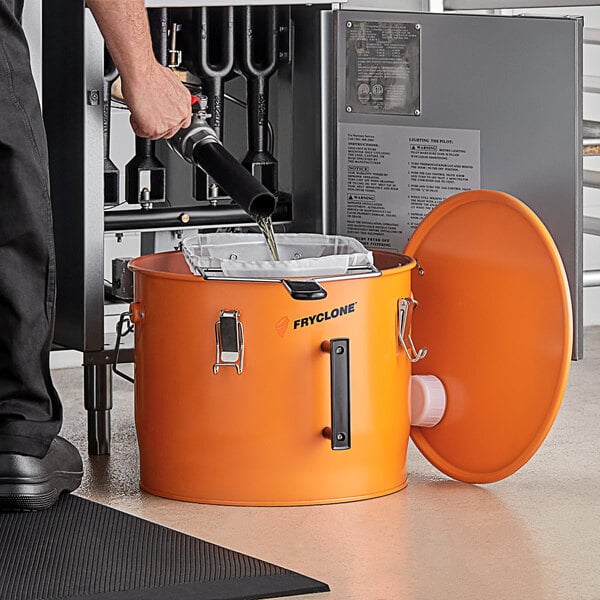
- Grease Traps: Grease traps are designed to capture and retain grease, preventing it from entering the wastewater system and causing clogs and other plumbing issues. Grease traps work by allowing wastewater to flow through them while trapping grease and solids. They are typically installed under sinks, dishwashers, and other areas where grease is generated. Regular maintenance and cleaning of grease traps are necessary to ensure optimal performance.
- Grease Interceptors: Grease interceptors, also known as grease separators, are larger versions of grease traps and are commonly used in high-volume commercial kitchens. These devices are designed to handle larger amounts of grease and solids. Grease interceptors work by using gravity to separate grease from wastewater. As wastewater flows through the interceptor, the grease rises to the top, while solids settle at the bottom. The clarified water then exits the interceptor. Grease interceptors require regular maintenance and cleaning to prevent buildup and maintain efficiency.
- Fryer Oil Pails: Fryer oil pails are specifically designed to safely hold and transport hot oil while preventing spills and accidents. They are made of durable materials, such as stainless steel or plastic, and are equipped with handles and spouts for easy pouring. Fryer oil pails often come with filters or strainers to remove any food particles or debris from the oil before disposal.
- Fryer Oil Shuttle: For larger commercial kitchens with multiple fryers, a fryer oil shuttle allows for easy and efficient transfer of used fryer oil from fryers to storage containers or disposal units. Fryer oil shuttles typically come with a built-in pump and hoses that can be connected to the fryer's drain valve. By simply activating the pump, the used oil is quickly and effortlessly transferred. This eliminates the need for manual lifting and reduces the risk of spills or accidents.
- Kitchen Hoods: While not directly related to grease collection, kitchen hoods play a crucial role in preventing grease buildup and improving air quality. Grease-laden vapors, smoke, and odors generated during cooking are captured by the hood filters. Regular degreasing of hood filters is essential to ensure proper ventilation.
Grease Collection Service: How Does It Work?
Grease collection services are available to facilitate the process of regular grease disposal for foodservice businesses. By partnering with a grease collection service, restaurant owners can focus on their core operations while ensuring the proper maintenance of their grease traps and disposal of fryer oil. Here is what to expect when working with a restaurant grease pick-up service:
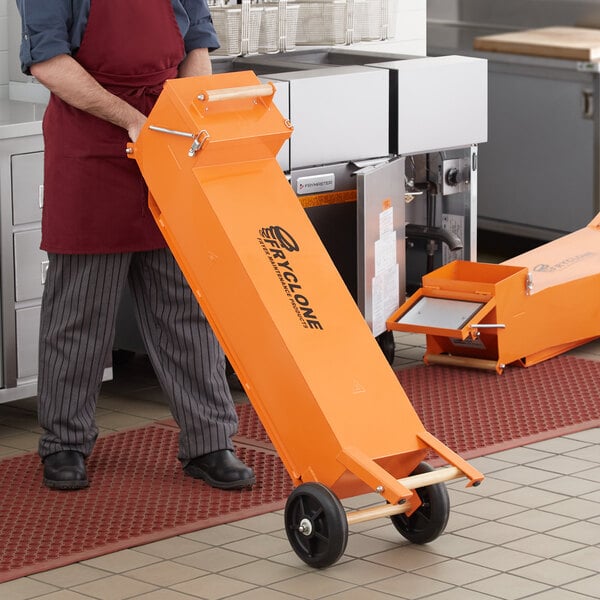
- Scheduling and Pickup: When you sign up for a grease collection service, you will typically be assigned a specific pickup schedule based on your restaurant's needs. The service provider will work with you to determine the frequency of pickups, which can range from weekly to monthly, depending on the volume of grease your establishment generates.
- Grease Container Placement: To facilitate the collection process, a grease container will be provided to your restaurant. This container is specifically designed for storing grease and is equipped with a secure lid to prevent leaks and spills. It is important to place the container in a convenient and accessible location, such as the kitchen or storage area, to ensure easy access for the service provider during pickups.
- Grease Transfer: During each scheduled pickup, the service provider will arrive at your restaurant with a specialized truck equipped to handle the collection of grease. Trained technicians will safely transfer the grease from your container to the truck using appropriate equipment, such as pumps and hoses. This transfer process is conducted in a manner that minimizes the risk of spills or contamination.
- Grease Trap Cleaning: Some grease collection services may also send a trained technician to pump out the accumulated grease and solids from the grease trap. This process helps to prevent blockages in plumbing systems and ensures that the grease is disposed of properly.
- Grease Disposal: Once the grease has been collected, it is transported to a designated facility for proper disposal. Depending on local regulations and industry standards, the collected grease may be recycled or used for various purposes, such as biofuel production or animal feed. It is important to choose a reputable grease collection service provider that adheres to environmentally responsible disposal practices.
Benefits of Grease Collection Service
Grease collection service plays a vital role in the successful operation of a restaurant. The following are just some of the benefits of hiring an oil collection service for your business:
- Compliance with Regulations: Hiring a grease collection service ensures that your restaurant remains compliant with health and safety regulations. Improper disposal of grease can result in fines and penalties, as well as damage to the environment. By utilizing a professional service, you can rest assured that your grease is being handled and disposed of in accordance with the law.
- Prevention of Plumbing Issues: Grease buildup in plumbing systems can lead to costly repairs and disruptions to your restaurant's operations. Grease collection services that offer grease trap cleaning can help prevent the accumulation of grease in drains and pipes, reducing the risk of clogs and blockages. This proactive approach helps to maintain a smoothly running kitchen and avoids potential downtime.
- Fire Hazard Reduction: Grease is highly flammable and can pose a significant fire hazard if not properly managed. By regularly removing grease from your establishment through a collection service, you minimize the risk of grease-related fires. This not only protects your staff and customers but also helps to safeguard your property and livelihood.
Grease Disposal FAQs
We answer some of the most frequently asked questions when it comes to fryer oil disposal.
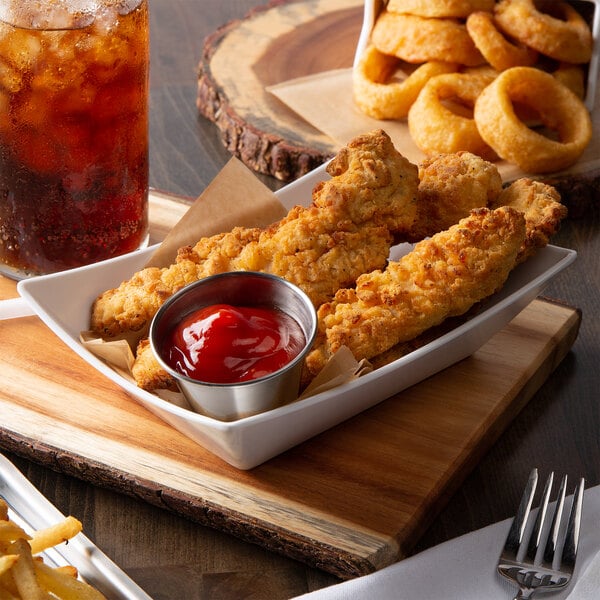
Can Oil Go Down the Drain?
Oil can not be disposed of down the drain. Pouring oil down a sink or floor drain can lead to clogged pipes and sewer backups, causing costly repairs and potential health hazards. Instead, it is recommended to properly dispose of used oil by collecting it in a container and recycling it. Grease interceptors or traps can also be installed to capture grease before it enters the plumbing system. Professional services are available to dispose of large quantities of grease. By taking these precautions, restaurant owners can ensure the longevity of their plumbing system and prevent environmental pollution.
How Do Restaurants Dispose of Cooking Oil?
Restaurants must properly dispose of used cooking oil to comply with environmental regulations. One common method is to collect the oil in designated containers and have it picked up by a licensed grease recycling company. These companies then recycle the oil into products like biofuels and animal feed. Some restaurants may also have grease traps or interceptors installed to capture the oil before it enters the sewage system. Proper disposal of cooking oil not only helps protect the environment but also prevents clogged pipes and costly plumbing issues.
Grease Filtering Video
Learn how to filter your restaurant grease with this video:
Grease management is an essential part of the foodservice industry. Train your staff on proper grease handling techniques and the importance of regular maintenance to ensure a safe working environment. Enlisting the services of a grease collection company can provide specialized expertise and equipment to efficiently remove and dispose of grease, preventing costly plumbing issues and health code violations while maintaining compliance with local regulations. By investing in staff training and professional assistance, restaurants can maintain a hygienic and efficient kitchen environment.
